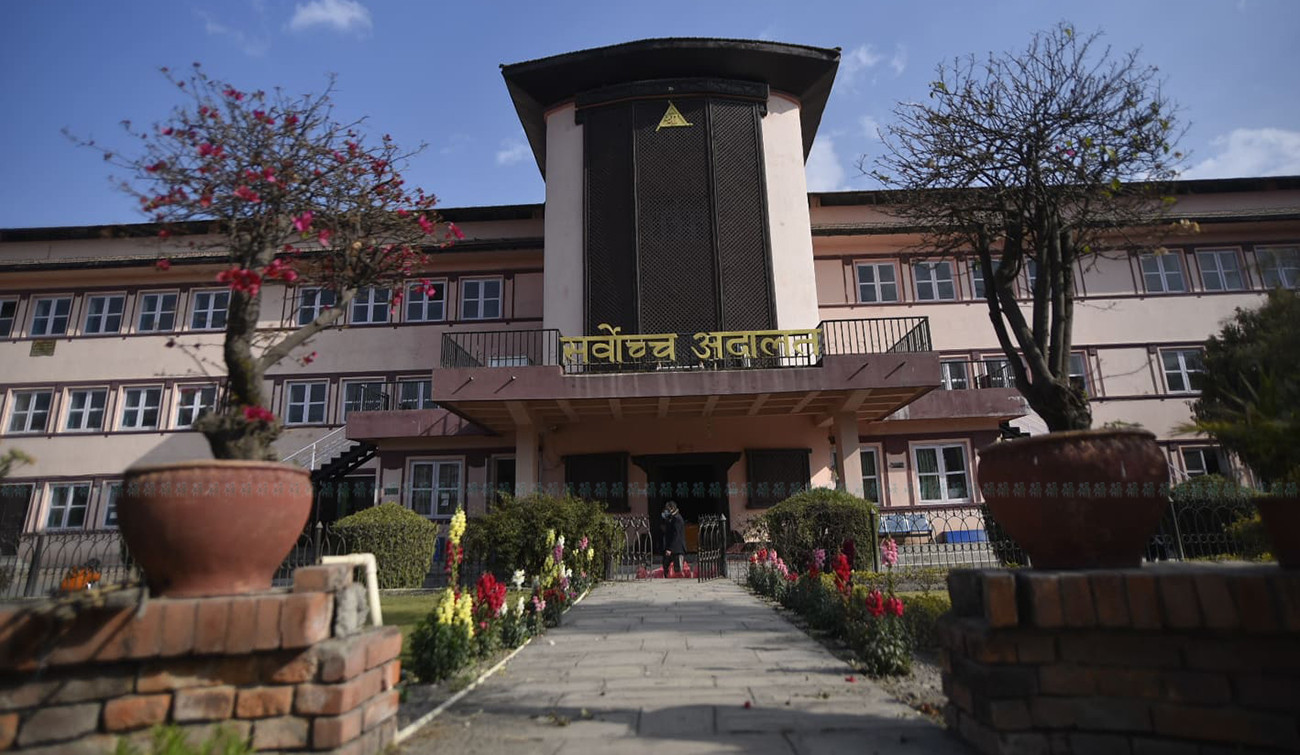The Supreme Court has interpreted that a government can be formed under Article 76 (2) of the Constitution as long as it is possible.
The Constitutional Bench ruled that if a government formed with the support of two or more political parties fails to secure a vote of confidence, the leader of the largest party in Parliament cannot be made prime minister immediately under Article 76 (3).
"If a coalition government has been formed once and later a major political party withdraws its support, causing the government to lose a renewed vote of confidence in Parliament, the Constitution does not appear to reject the possibility of forming a new coalition or a new majority," the Supreme Court stated.
The apex court has interpreted that, as far as possible, a government can be formed with the support of two or more political parties.
"Attempting to form a government again under Article 76 (2) is not only constitutionally justified, but also a responsible practice that ensures the stability of the parliamentary system," the Constitutional Bench stated. "In such cases, any political party that can prove a majority always has the legitimate right to form and run a government."
The order was issued on August 14, 2024, by a bench comprising then-chief justice Bishowambhar Prasad Shrestha, Justices Prakash Man Singh Raut (current chief justice), Sapana Pradhan Malla, Prakash Kumar Dhungana, and Kumar Regmi, in response to a writ petition filed by advocate Deepak Adhikari and others. The full text of the order was made public a few days ago.
At the time, a coalition government was formed with the support of CPN-UML and Pushpa Kamal Dahal was appointed prime minister under Article 76 (2) of the Constitution. However, Dahal’s government fell into a minority after the UML withdrew its support.
On July 12, 2024, Dahal sought a vote of confidence in the House of Representatives but failed to secure it, leading to the collapse of his government.
After that, the two major parties in Parliament – Nepali Congress and UML – made preparations to form a joint government. President Ram Chandra Paudel called for the formation of a new government under Article 76 (2) again.
Consequently, a government was formed under the leadership of UML Chairman KP Sharma Oli.
Advocates argued that since Article 76 (2) had already been invoked, Oli’s appointment as prime minister was not in accordance with the Constitution. They further claimed that the leader of the parliamentary party with the largest number of members should be appointed prime minister under Article 76 (3).
The petitioners argued that Nepali Congress President Sher Bahadur Deuba should have been appointed prime minister instead of Oli, asserting that Oli’s appointment was unconstitutional.
However, the Supreme Court stated that restricting the use of Article 76 (2) to only one instance would weaken political stability, accountability, and respect for the people’s mandate.
"The president’s order to allow the formation of a majority government under Article 76 (2) again after the loss of confidence in a previous majority government formed under Article 76 (2) is not only constitutional, but also a practical extension of the democratic, competitive parliamentary system envisioned under Article 74 of the Constitution," the Supreme Court interpreted.
The Supreme Court dismissed the writ petition.

